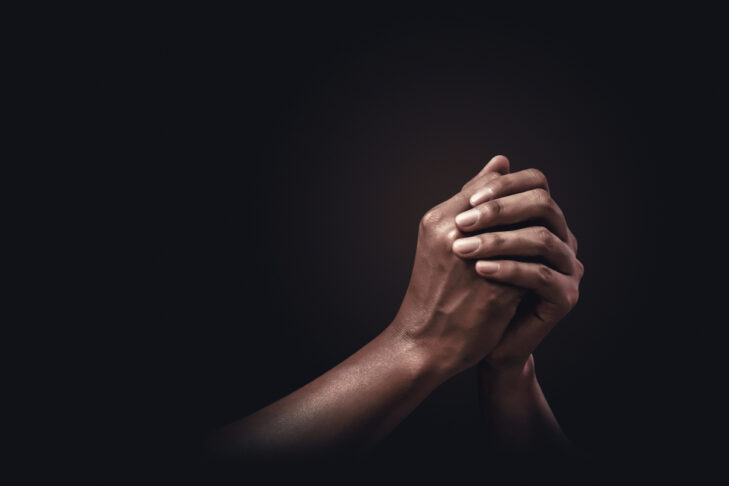There were 30 of us on display on the screens of our laptops, “The Brady Bunch”-style. We had answered the request to make a minyan each evening for our friend’s week of mourning. Each of us in our Zoom cubicles made this unprecedented shiva call. My friend’s 95-year-old mother died on the cusp of the COVID-19 pandemic. The funeral was private. The mourning was virtual. We gathered in memory of a woman who loved to be with people. It made for a weird irony not to be with our friends in person.
Judaism is a communal religion for which praying in concert requires a minimum of 10 people. Although the Talmud uniquely reaches across the centuries—rabbis who lived hundreds of years apart argue with one another throughout its pages—no one could have anticipated this strange time. It’s like living in outer space. Only we are earthbound—so much so that we are confined to our houses to slow the spread of this menacing virus. Who knows if and how we are releasing this mortal enemy lurking among us? People cross the street when I take my dog for a walk. We quickly nod as if even that small gesture can spread the virus.
Each night that we logged into the virtual shiva, we heard another story about our friend’s remarkable mother. She read voraciously almost until the end of her life. She left behind a memoir for her family. At 90, she fulfilled a lifelong dream and performed stand-up comedy, or, as she creatively described it, “sit-down comedy.” It broke my heart to see my friend crying the tears of a grief-stricken son.
To pray alone in Judaism is not encouraged, but it is allowed. Only the Kaddish, the Mourner’s Prayer, must always be said in a minyan. Grieving properly is a group effort, and it’s a sacred responsibility to be among the 10 people who form a shiva minyan. The rationale is that a mourner should not be alone with their grief. Fellow congregants should be available to provide comfort. Being in the midst of a minyan allows for a spontaneous opportunity for the mourner to share a cherished memory or a special story about the person who died.
Related
Last Friday evening, Gov. Charlie Baker was invited to my temple and spoke to our congregation through a livestream. It was my first time accessing the temple’s live feed, making it particularly surreal for me to see the governor speaking to an empty sanctuary. No one was present except the rabbis and cantor who were there to conduct the service. There were also the musicians who socially distanced themselves from one other as they played the familiar, comforting Shabbat evening melodies.
The governor pointed out how difficult it is for communities of faith to be socially isolated. “Think about what we do at services or at funerals—we hug, we kiss, we cry and then we hug and kiss some more,” he said. He pointed out that the audience for a funeral is typically the elderly—the population most vulnerable to this frightening, mysterious virus. Everything, he went on to note, has been put on pause. Yet this is a time for grace. And religious communities are our greatest source of grace and strength. “Whatever this thing is, we’ll find our way to see it through,” the governor said. I wanted so much to believe him.
I’m a Shabbat morning regular. I go to services at least two Shabbatot (plural of Shabbat) a month. As the old joke goes, Cohen goes to synagogue to be close to God and Greenberg goes to synagogue to be close to Cohen. I’m the Greenberg. I go to temple to be close to my 96-year-old friend Bunny. Bunny epitomizes the Shabbat morning experience for me. Through the years, Bunny knows for whom I stand if I say the Kaddish. She knows my joys, my sorrows and everything in between for which I pray.
Bunny doesn’t do virtual, and, truth be told, I don’t think to be virtual with her would be entirely satisfying. Consequently, I miss seeing Bunny terribly. I miss sitting with her at the oneg (festive reception following services). I miss chatting with her about my week and my kids. But mostly, I miss my friend’s hugs. It devastates me that hugging her has become potentially deadly for us.
Hands-free worship. No-touch mourning. Minyans in cyberspace. People in self-isolation trying to outwit an invisible, mortal foe. To what do we answer “amen” to in these foreboding, lonely days?
For more, read “The Coronavirus Diaries, Part 1: On Hand Washing.”




